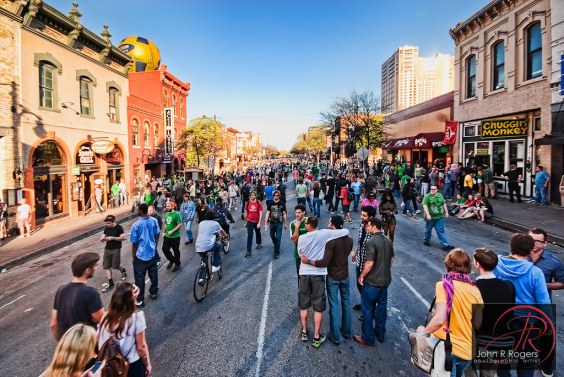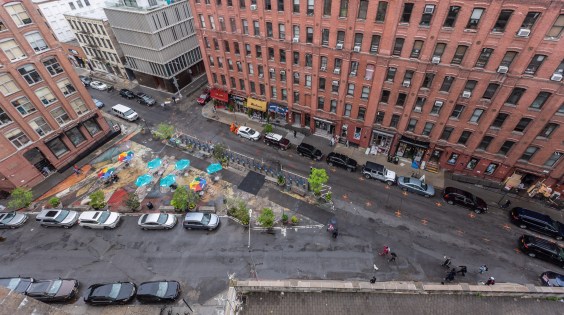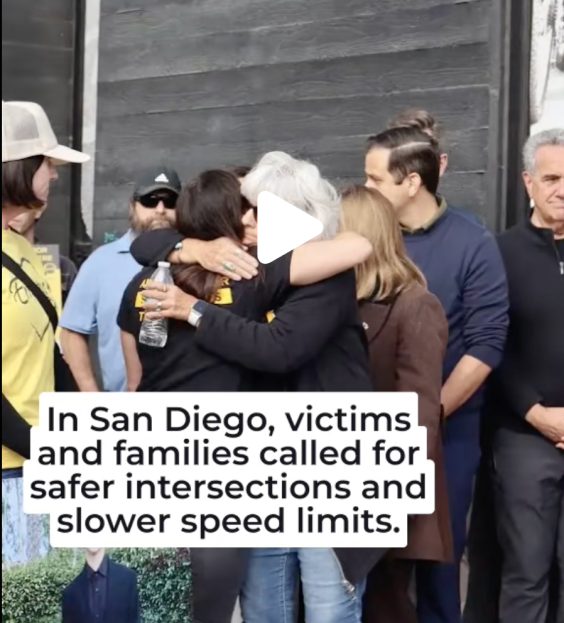Since 2007, New York City has built 98 miles of protected bike lanes. In the same time frame, Philadelphia has built just 2.5 miles.
Thanks to the narrow streets, bicycling in Philadelphia is still relatively high compared to most American cities. But the city has barely begun to tap the potential for street redesigns to reduce traffic dangers and make cycling appealing to people of all ages.
One reason for the slow progress is a special rule, enacted in 2012 as part of the city's complete streets policy, that gives each City Council member veto power over bike lanes. Before a bike lane can be implemented, it must have the explicit endorsement of the council member representing the district.
The main effect is to drag out the process of installing street safety improvements. Getting "approval for a single, one-mile stretch" of bike lane "can require years of consensus building," writes Samantha Melamed at the Philadelphia Inquirer.
That's what happened on Chestnut Street in West Philadelphia. After six years of advocacy and organizing for a protected bike lane on a dangerous 11-block stretch of the road, the city finally implemented the project. But then Council Member Jannie Blackwell, who had been a supporter, received some pushback from constituents and said she wanted to reevaluate the bike lane after three months.
The Chestnut Street bike lane is still in place, but Blackwell wants to make it harder to build similar projects. She recently introduced a bill that would give council members veto power over projects that upgrade existing bike lanes to protected bike lanes. Currently, the city is not legally obligated to get approval in those cases.
If enacted, the rule could disrupt the city's plans to convert painted several bike lanes to protected bike lanes.
Dena Driscoll, a mother of two and co-chair of the advocacy group 5th Square, says the rule makes the work of advocating for safer streets much more difficult.
Recent expansions of the bike network have set off a backlash among some residents who intensely object to repurposing parking spaces or simply encouraging more people to bike. Advocates may get 800 signatures in support of a bike project, said Driscoll, but if a few people highly active in local politics oppose it vociferously enough, that may be enough to kill it.
Council members "are listening to some of the loudest voices," she said. "There’s no clear way to know if we're going to get their support or not get that support."
In some neighborhoods, she said, the addition of bike lanes is associated with gentrification. In other cases, bike lane upgrades in affluent neighborhoods trigger backlash.
When Mayor Jim Kenney was elected in 2015, he said his administration would complete 30 miles of protected bike lanes. He has not commented on the legislation. Two years into his time in office, it already seems unlikely that he'll achieve his promise to improve the bike network.
Driscoll transports her young children around the city by bike, and she is exasperated.
"At this point [council members] already have so much power," she said. "The Kenny administration, they’re still going to the council people to ask for that permission. They’re still defaulting to whatever the council person thinks is the quote-unquote temperature of the neighborhood."





